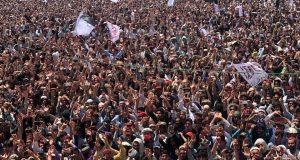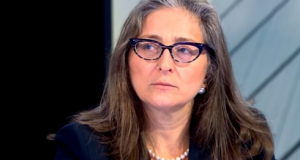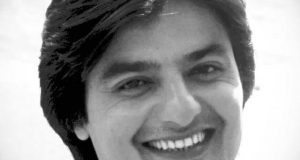 Ghani Khan (1914-1996) was born in Hashtnagar (Charsadda), Pakhtunkhwa. Ghani was the eldest son of the great Pashtun political and spiritual leader Khan Abdul Ghaffar Khan (aka: Bacha Khan) (1890-1988), who dedicated his life for the freedom, education, empowerment and cause of Pashtun people. Renowned and revered for his peaceful campaign of social and political reform, Bacha Khan was nonetheless incarcerated throughout his life, ill-treated and hounded by the then tyrannical British Colonial governors. Bacha Khan’s struggle for his people was advocated through ‘non-violent’ means, earning him the title: ‘non-violent soldier of Islam. (More about Bacha Khan at a later date)
Ghani Khan (1914-1996) was born in Hashtnagar (Charsadda), Pakhtunkhwa. Ghani was the eldest son of the great Pashtun political and spiritual leader Khan Abdul Ghaffar Khan (aka: Bacha Khan) (1890-1988), who dedicated his life for the freedom, education, empowerment and cause of Pashtun people. Renowned and revered for his peaceful campaign of social and political reform, Bacha Khan was nonetheless incarcerated throughout his life, ill-treated and hounded by the then tyrannical British Colonial governors. Bacha Khan’s struggle for his people was advocated through ‘non-violent’ means, earning him the title: ‘non-violent soldier of Islam. (More about Bacha Khan at a later date)
Ghani Khan, one of the most gifted and loved 20th Century Pashto language poets, was also an artist, sculptor, politician and philosopher. While approaching many themes in his work, it is Ghani’s portrayal of his complex and problematic relationship with the ‘Mullah,’ (Religious leader), which captivates the imagination. Through wisdom, satire and wit, Ghani questions the authority, sincerity and position of the Mullah in Pashtun society, deeming his ideology and teachings to be one of hypocrisy and ignorance. Much of Ghani’s poetry embodies a profound love for God, reflected in Sufi devotional poetry such as that of Jalaladdin Rumi (1207-1273) and Rahman Baba (approx. 1652-1711). 
While I aim to discuss Ghani’s life and poetry at a later stage, in this essay I endeavour to review Ghani’s English language book: ‘The Pathans;’ (written in 1947). In this work, Ghani discloses an intimate portrayal of the Pashtun man offering the reader a glimpse of various aspects, principles and moral codes personified in ‘Pakhtunwali’ (the Pashtun code of honour). Ghani suggests that these values, customs and particularly the idea of ‘honour’ are inherent in the consciousness of Pashtuns: so much so, that the Pashtun is driven to avenge his honour if needs be. Ghani approaches his subject under various headings such as: History; Folk Songs; An Incident; Customs; Priest, Magic & Charms; Revenge; and Politics. With a touching and at times humorous account, Ghani concludes with a tribute to one of the most exemplary Pashtun men of all times: his father: Bacha Khan.
Ghani begins by expressing the paradoxical nature of the Pashtun man, which he refers to as one of: ‘complicated simplicity.’ If we are to understand the laws of the Pashtun, we need to learn of his customs. Ghani tells us ‘the Pashtun will forgive you anything if you do it bravely enough, and like the Greeks, he is a great poet and warrior: almost all his wars are over women.’ He tells us the Pashtun is a ‘temperamental neighbour who might become a loving friend, or a deadly enemy. His violent nature, strong body and tender heart make a very unstable combination for living but an ideal one for poetry and colour.’
 On the subject of ‘honour,’ Ghani recounts the story of a ‘proud Khan’ who shot another Khan who had insulted his father. (in Pakhtunwali, ‘Badal;’ meaning ‘revenge,’ must be sought to avenge any insult or harm caused to one’s family or tribe) Ghani tells us, ‘the blood of a Pashtun cannot be paid for except with blood:’ giving clear indication that these are not state laws, but the laws of the people: ‘A Pashtun knows his customs before he knows how to eat. It is bred in him. For cruel and oppressive as the customs and laws are, they are the only binding force of our culture.’ Ghani articulates his philosophy on this subject where he states:
On the subject of ‘honour,’ Ghani recounts the story of a ‘proud Khan’ who shot another Khan who had insulted his father. (in Pakhtunwali, ‘Badal;’ meaning ‘revenge,’ must be sought to avenge any insult or harm caused to one’s family or tribe) Ghani tells us, ‘the blood of a Pashtun cannot be paid for except with blood:’ giving clear indication that these are not state laws, but the laws of the people: ‘A Pashtun knows his customs before he knows how to eat. It is bred in him. For cruel and oppressive as the customs and laws are, they are the only binding force of our culture.’ Ghani articulates his philosophy on this subject where he states:
‘When a law is bred into the very fibre of a race it becomes a custom. A man gives his children not only the shape of his nose and the cranks in his character, he also teaches them his fears and forebodings, his songs and curses. He moulds his child as nearly as he can to his own shape.’
When Ghani approaches the subject matter of ‘Politics:’’ he does so philosophically and with a twinge of humour where he writes:
‘Politics today do what religion did five hundred years ago. They are merely a system which men have developed, whereby they pay for their stupidities by giving crafty wise men and earnest fools the power to rule them. For every man must rule or be ruled. There is no third way unless you are a poet or a lunatic,’
In dealing with the subject of: failure of the social system to provide for his family, Ghani writes:
‘When a political arrangement decides to starve him and over-feed another, the Pashtun shoots holes into it. He would rather steal than beg. He would rather face the anger of God and man than the shame and disgrace of poverty.’
While Ghani recounts various stories, analogies and poetry to portray an understanding and description of the character of the Pashtun in this book, it is perhaps the final chapter which is most revealing and in many ways touching, in the representation of his father: Bacha Khan.
Broaching the subject of his father’s socio-political struggle and the birth of the movement of: ‘Khudai Khidmatgar,’(Servants of God) Ghani recounts:
“The sole role of the political department of the Government of India under the British was to try to teach the hawks of Khyber the wretched ways of the crow and the vulture. It seduced the lowest and the greediest of the tribe and gave them importance and bought influence for them. A tool must be important and influential. All influence in the tribes belonged to the Khan and the Priest (Mullah) – one is the lord of this world, the other claims the lordship of the next.”
Ghani explains that at this time ‘the Empire was safe and the Pashtun damned. Then, it was in a little village in the prosperous Peshawar valley that the first Khudai Khidmatgar was born.’ Ghani lovingly discusses his grandfather: Behram Khan, by recalling:
‘He had no feuds – a unique distinction for a Khan, because he had forgiven all his enemies. Behram never told a lie, he did not know how to. He liked the British who ruled him though he could never remember their names. He was painfully honest; therefore the people loved him.’
Equally touching is Ghani’s account of his father Bacha Khan where he states:
“Being the youngest child he was his mother’s pet. The boy was kind and clean and six-foot-three. He loved his old father and always gave strange, noble reasons for doing things. The old Khan forgave him everything, even refusing a commission in the Army. His beautiful old mother supported the boy and seemed to understand him better than he. She understood everything the child did.”
Ghani recounts how after the death of his wife, Bacha Khan ‘drowned his sorrow in work and service: he found a new love – his people.’ He began talking to the people, drawing attention to the misery and darkness of their lives, opening schools and dealing with the British rulers on their behalf. Acknowledging the high illiteracy rate amongst Pashtuns, Bacha Khan went from village to village promoting education. Because of his power and popularity, he became a thorn in the side of the British and was thus condemned to years of torture in various prisons. Yet Ghani writes: ‘His spirit was like steel. His blue eyes were proud of their suffering and determined and cold.’ Ghani concludes by stating that:
‘Bacha Khan is the politics of the Pashtun. He understands the Pashtun and they understand him. Bacha Khan discovered that the kindest strength is the greatest strength, that the only way to be brave is to be right; that a clean dream is dearer than life and the soft eyes of your children. These are the things he has taught the Pashtun.’
(All the above quotes taken from: Ghani Khan ‘The Pathans’ (published 1947 by University Book Agency, Peshawar)
Writer: Angelina Merisi
The writer hails from Ireland. She is part of the Pashtuns Times News Network. She is a PhD scholar at the University College Cork, Ireland. Her current research is focused on Islam and Pashtun male migrants in Ireland, masculinity and honour concepts. Angelina is a freelance writer and poet. She can be reached at
Angelmer333@gmail.com
ALL RIGHTS RESERVED WITH THE PASHTUNS TIMES
 Pashtun Times Latest News
Pashtun Times Latest News



